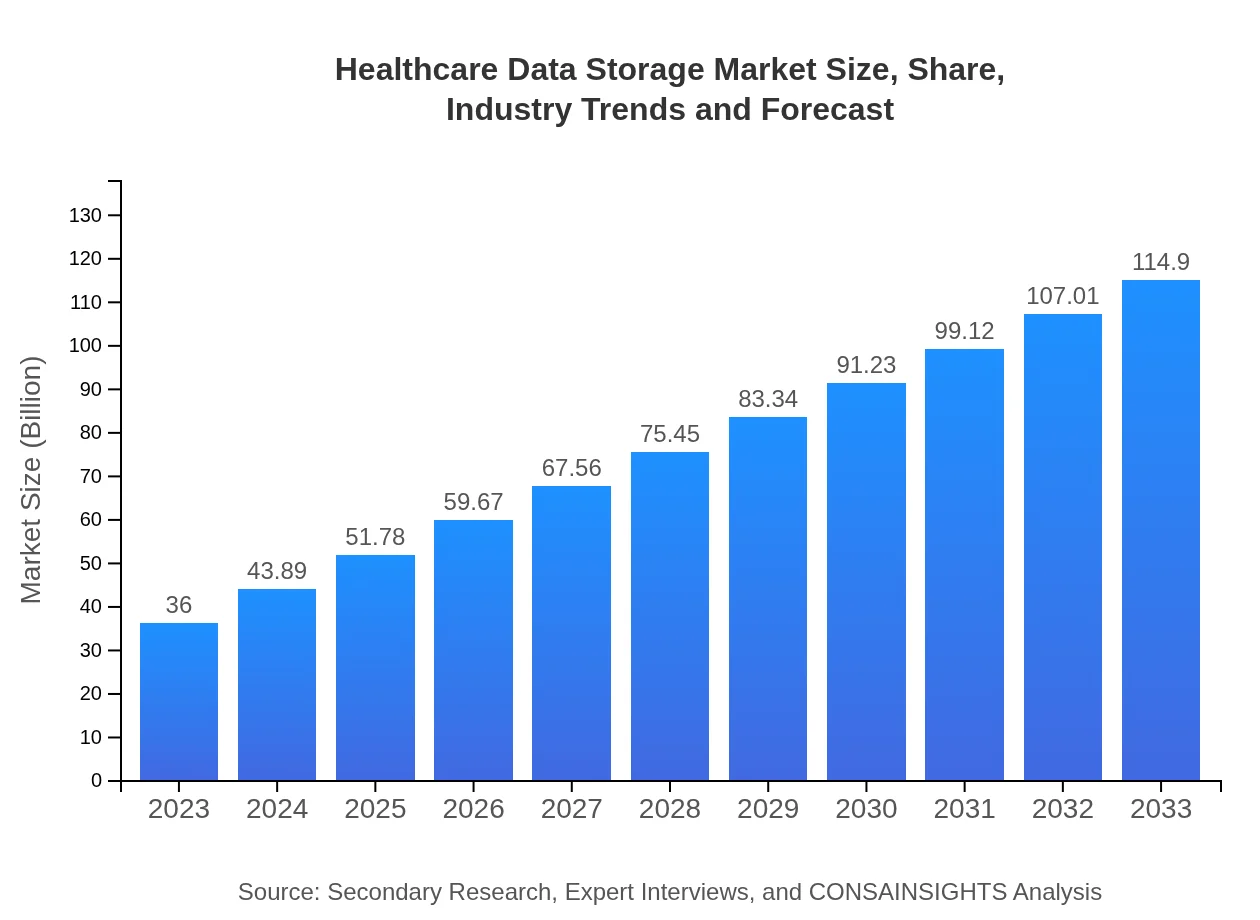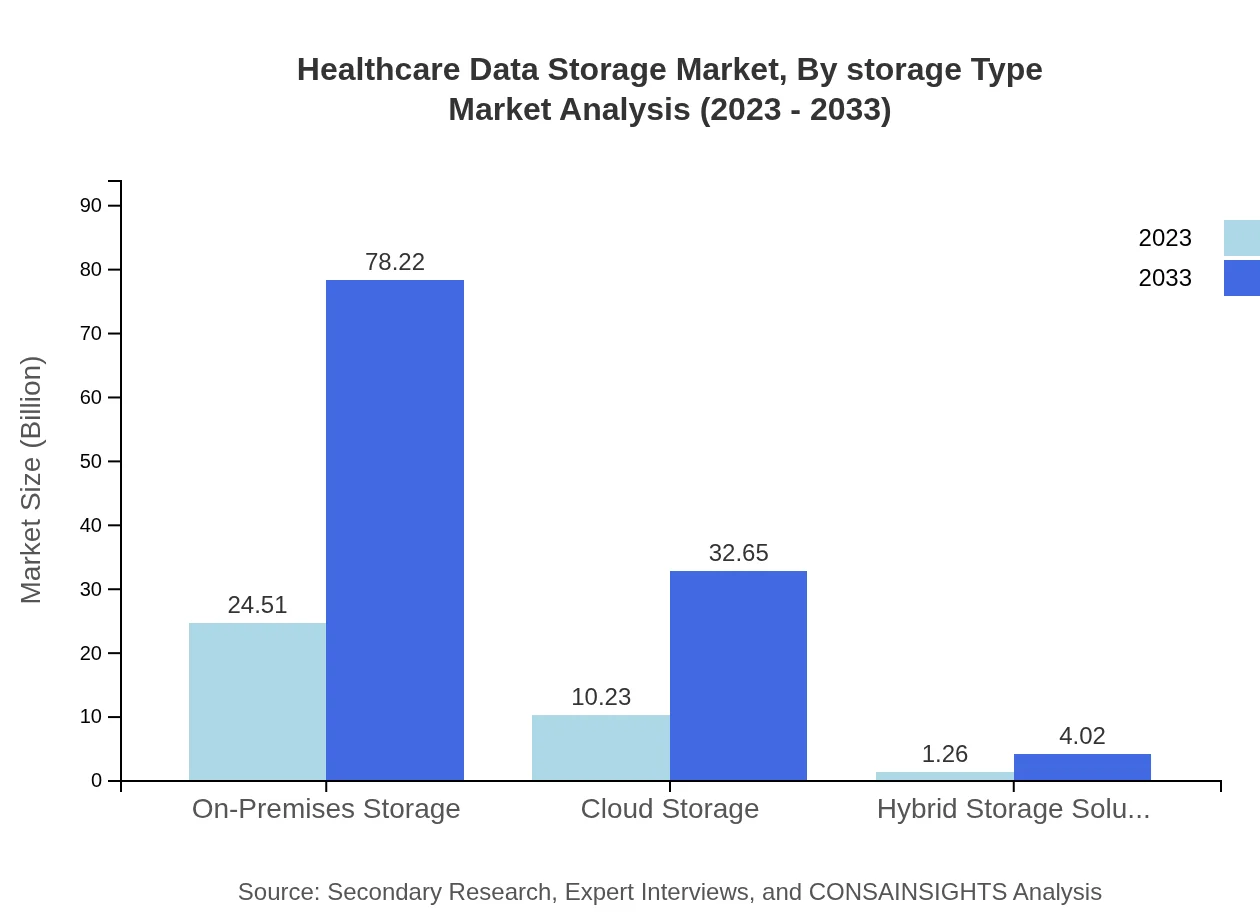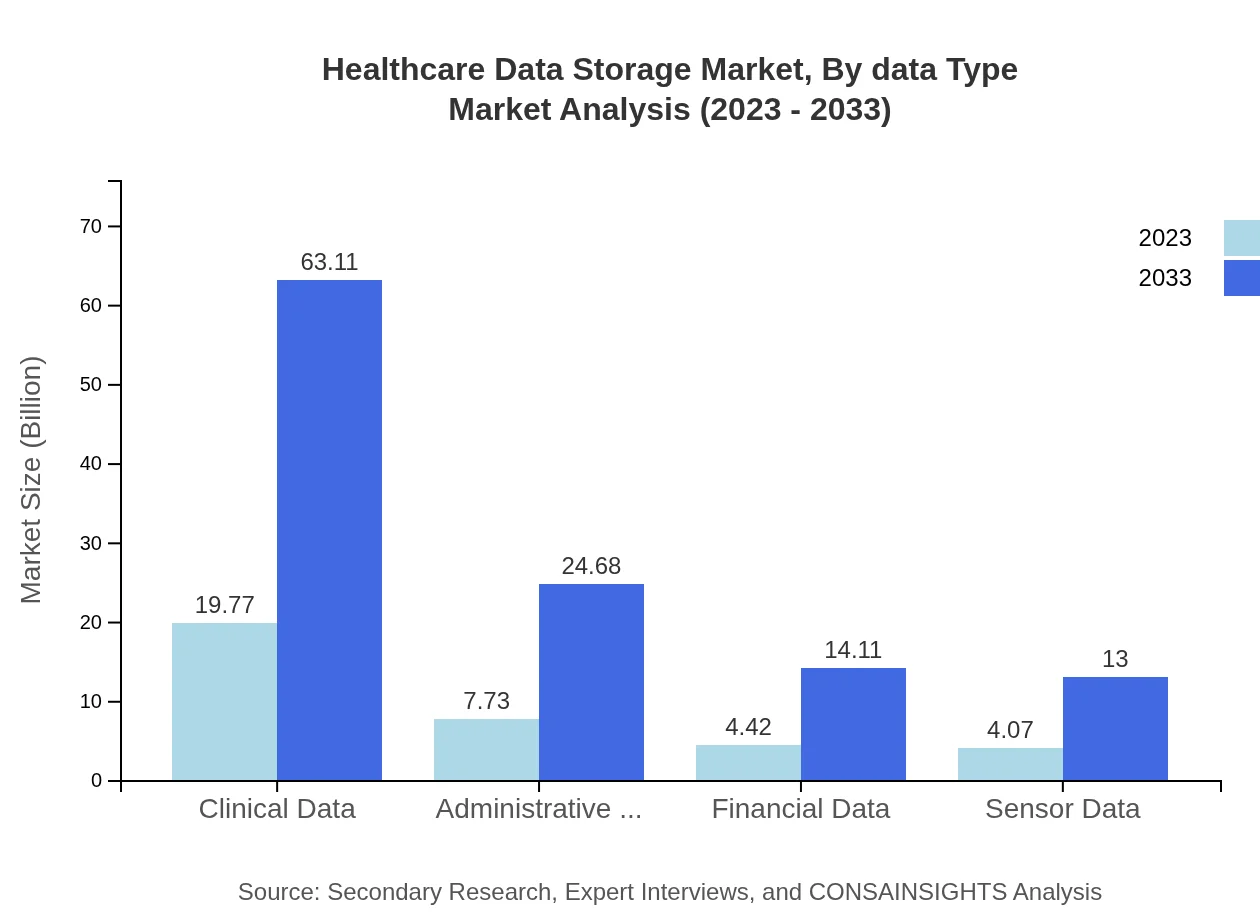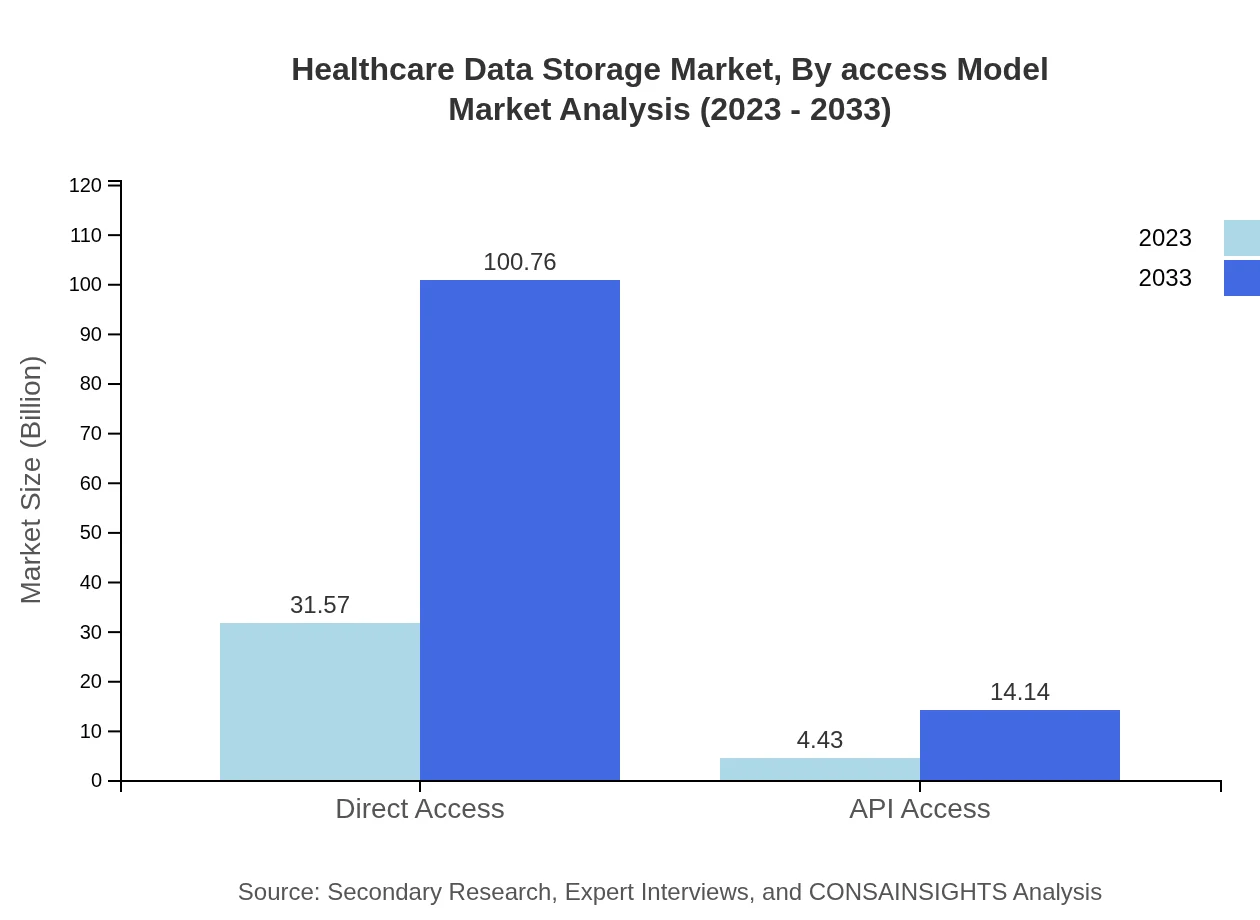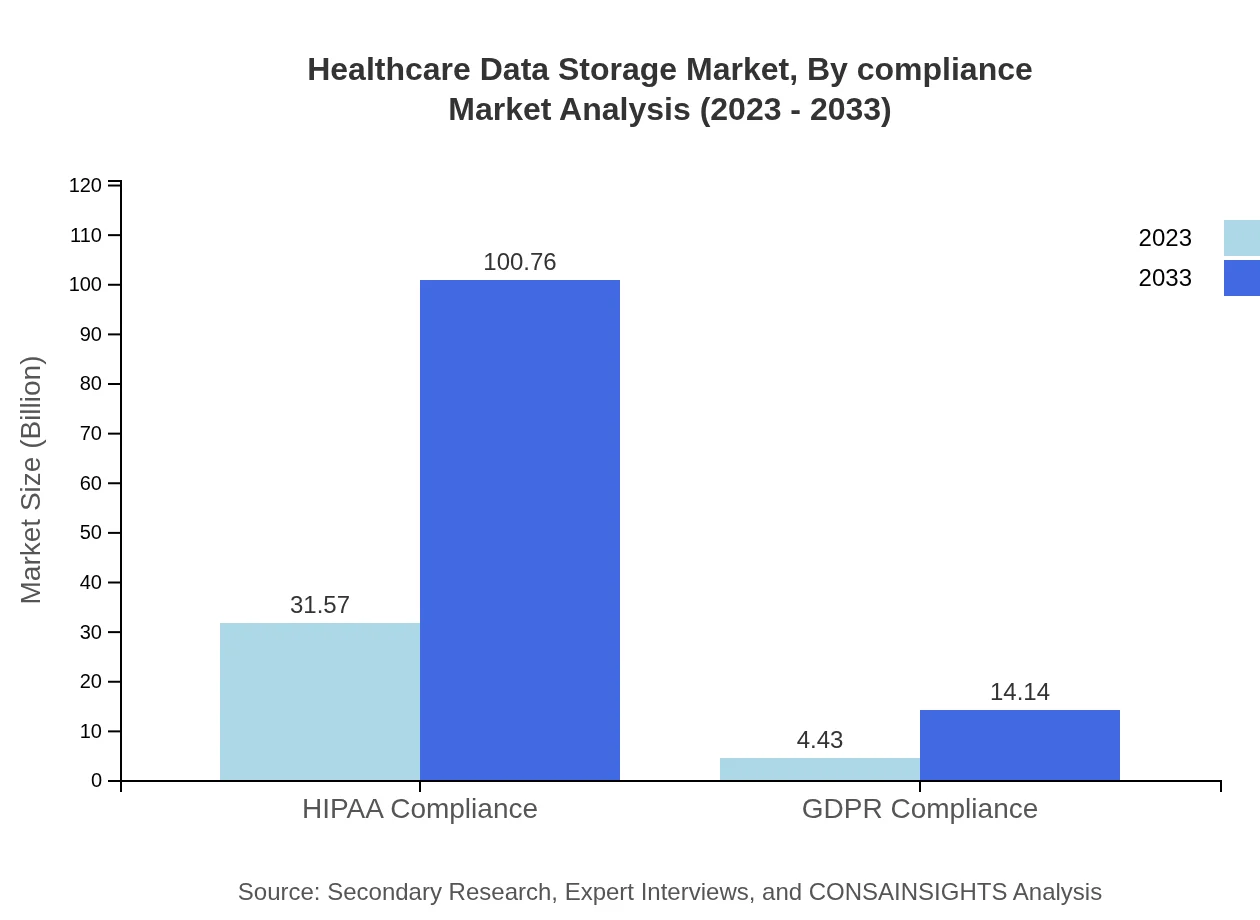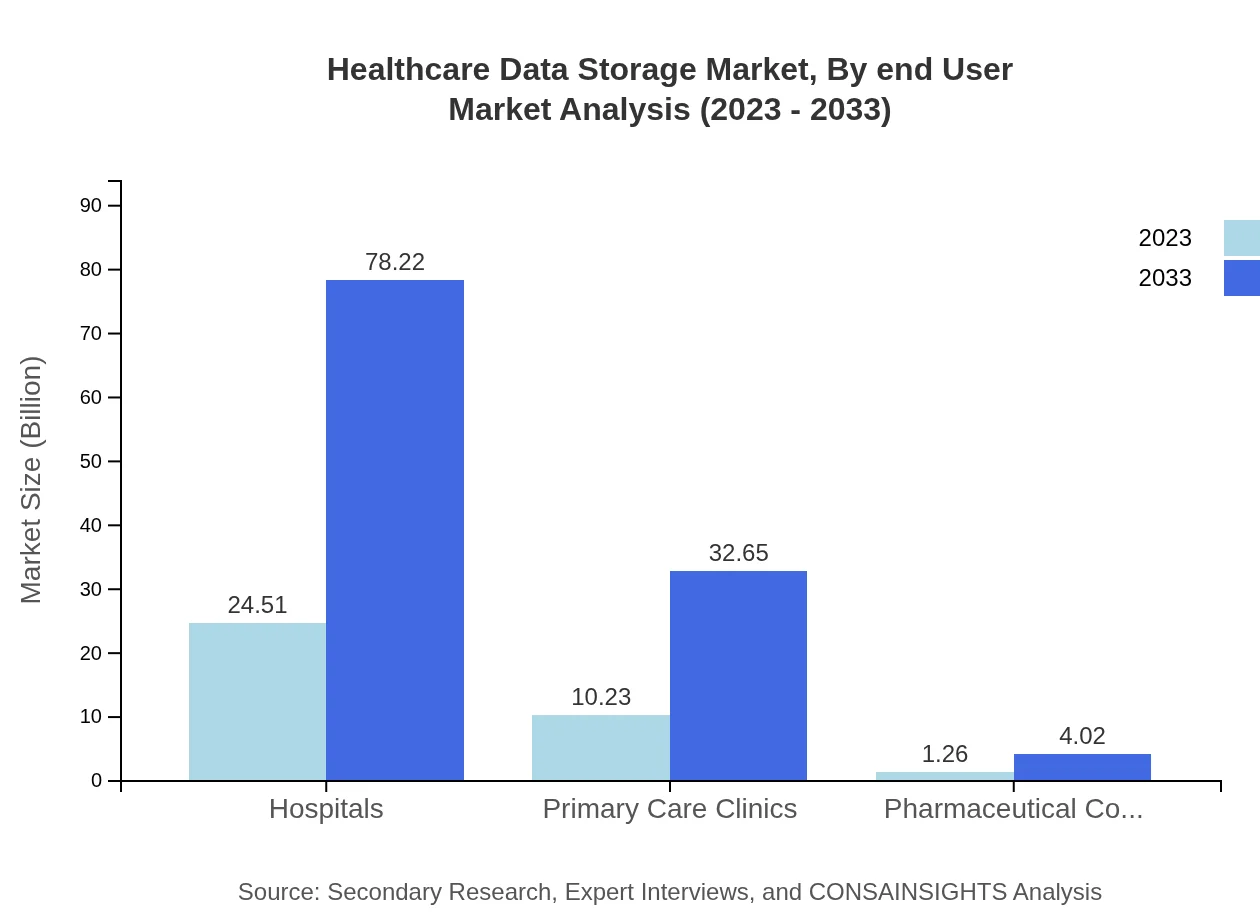Healthcare Data Storage Market Report
Published Date: 31 January 2026 | Report Code: healthcare-data-storage
Healthcare Data Storage Market Size, Share, Industry Trends and Forecast to 2033
This report provides an in-depth analysis of the Healthcare Data Storage market from 2023 to 2033, exploring market size, trends, regional insights, and key companies shaping the industry.
| Metric | Value |
|---|---|
| Study Period | 2023 - 2033 |
| 2023 Market Size | $36.00 Billion |
| CAGR (2023-2033) | 11.8% |
| 2033 Market Size | $114.90 Billion |
| Top Companies | IBM Corporation, Dell Technologies, Amazon Web Services (AWS), Microsoft Azure, Oracle Corporation |
| Last Modified Date | 31 January 2026 |
Healthcare Data Storage Market Overview
Customize Healthcare Data Storage Market Report market research report
- ✔ Get in-depth analysis of Healthcare Data Storage market size, growth, and forecasts.
- ✔ Understand Healthcare Data Storage's regional dynamics and industry-specific trends.
- ✔ Identify potential applications, end-user demand, and growth segments in Healthcare Data Storage
What is the Market Size & CAGR of Healthcare Data Storage market in 2023?
Healthcare Data Storage Industry Analysis
Healthcare Data Storage Market Segmentation and Scope
Tell us your focus area and get a customized research report.
Healthcare Data Storage Market Analysis Report by Region
Europe Healthcare Data Storage Market Report:
The European market for Healthcare Data Storage is projected to increase from $10.09 billion in 2023 to $32.22 billion by 2033. The rise is attributed to regulatory compliance requirements, advancements in technology, and increasing demand for data-driven healthcare solutions amidst an aging population.Asia Pacific Healthcare Data Storage Market Report:
In the Asia-Pacific region, the Healthcare Data Storage market is expected to expand from $6.90 billion in 2023 to $22.04 billion by 2033. The growth is driven by increasing healthcare expenditures, rapid urbanization, and technological advancements in countries like China and India, where digital transformation initiatives are robust.North America Healthcare Data Storage Market Report:
In North America, the market is set to grow from $12.27 billion in 2023 to $39.15 billion by 2033. This region leads the market due to high healthcare spending, significant investments in technology, and strict regulations necessitating secure data storage.South America Healthcare Data Storage Market Report:
South America is anticipated to witness growth from $3.23 billion in 2023 to $10.32 billion by 2033. Increased investments in healthcare infrastructure and growing awareness of data management solutions among healthcare providers are key growth drivers.Middle East & Africa Healthcare Data Storage Market Report:
The Middle East and Africa market is expected to rise from $3.50 billion in 2023 to $11.18 billion by 2033, fueled by an increase in healthcare spending and growing initiatives to enhance healthcare services across the region.Tell us your focus area and get a customized research report.
Healthcare Data Storage Market Analysis By Storage Type
The market is heavily dominated by On-Premises Storage, which is expected to grow from $24.51 billion in 2023 to $78.22 billion by 2033, maintaining a 68.08% market share. Cloud Storage also sees significant growth, from $10.23 billion to $32.65 billion, with a share of 28.42%. The Hybrid Storage Solutions segment remains niche but is experiencing growth as organizations seek flexibility in data handling.
Healthcare Data Storage Market Analysis By Data Type
Clinical Data represents the largest segment, anticipated to increase from $19.77 billion to $63.11 billion by 2033, capturing 54.93% of the market share. Administrative Data follows, growing from $7.73 billion to $24.68 billion, contributing 21.48% market share. Financial Data and Sensor Data are smaller segments but show upward trends as healthcare organizations prioritize comprehensive data management.
Healthcare Data Storage Market Analysis By Access Model
Direct Access storage is projected to be a dominant model, with growth from $31.57 billion in 2023 to $100.76 billion in 2033, maintaining a high share of 87.69%. API Access is also gaining traction, expected to double from $4.43 billion to $14.14 billion, showing that interoperability is a growing focus in the market.
Healthcare Data Storage Market Analysis By Compliance
The HIPAA Compliance segment leads with a market size expansion from $31.57 billion to $100.76 billion. GDPR Compliance, while smaller, shows growth from $4.43 billion to $14.14 billion, underscoring the emphasis on regulatory adherence in managing healthcare data.
Healthcare Data Storage Market Analysis By End User
Hospitals represent the largest end-user category, growing from $24.51 billion to $78.22 billion by 2033, holding a substantial 68.08% of the segment share. Primary Care Clinics and Pharmaceutical Companies also show promising growth trends indicative of expanded data utilization across diverse healthcare sectors.
Healthcare Data Storage Market Trends and Future Forecast
Tell us your focus area and get a customized research report.
Global Market Leaders and Top Companies in Healthcare Data Storage Industry
IBM Corporation:
IBM provides innovative data storage solutions tailored for the healthcare sector, focusing on cloud and hybrid models while ensuring compliance with strict regulatory standards.Dell Technologies:
Dell is a leader in healthcare data solutions, offering a range of products that cater to the needs of large hospitals and clinics, enhancing operational efficiency and data management.Amazon Web Services (AWS):
AWS offers scalable cloud storage solutions that enable healthcare providers to handle vast volumes of data securely and efficiently, becoming a preferred choice among organizations.Microsoft Azure:
Microsoft Azure stands out for its multifaceted cloud services helping healthcare organizations maintain data compliance while leveraging advanced analytics and storage capabilities.Oracle Corporation:
Oracle focuses on database and cloud storage technologies, supporting healthcare organizations with reliable and secure data solutions tailored to meet complex compliance requirements.We're grateful to work with incredible clients.









FAQs
What is the market size of healthcare Data Storage?
The healthcare data storage market is currently valued at $36 billion, with a projected CAGR of 11.8%. By 2033, the market size is anticipated to significantly increase, driven by technological advancements and growing digital health initiatives.
What are the key market players or companies in this healthcare Data Storage industry?
Key market players in healthcare data storage include major technology firms like IBM, Microsoft, Oracle, and Amazon Web Services, along with healthcare-specific providers that focus on secure data management, cloud storage solutions, and compliance-driven services.
What are the primary factors driving the growth in the healthcare data Storage industry?
Growth in the healthcare data-storage industry is primarily driven by the increasing volume of healthcare data, the need for compliance with regulations like HIPAA, rising demand for cloud-based solutions, and advancements in data analytics technologies.
Which region is the fastest Growing in the healthcare data Storage market?
The fastest-growing region in the healthcare data-storage market is North America, expected to grow from $12.27 billion in 2023 to $39.15 billion by 2033. Europe and Asia Pacific also show strong growth, with increasing investments in healthcare IT.
Does ConsaInsights provide customized market report data for the healthcare data Storage industry?
Yes, ConsaInsights offers customized market report data for the healthcare data-storage industry, allowing clients to obtain tailored insights and analysis that meet their specific needs and strategic goals.
What deliverables can I expect from this healthcare data Storage market research project?
From the healthcare data-storage market research project, you can expect detailed reports, analytical data, regional market insights, competitive analysis, and strategic recommendations tailored to drive business decisions.
What are the market trends of healthcare data Storage?
Current market trends in healthcare data-storage include a shift towards cloud solutions, the rise of HIPAA-compliant services, integration of AI for data management, and a growing emphasis on data security and patient privacy.

